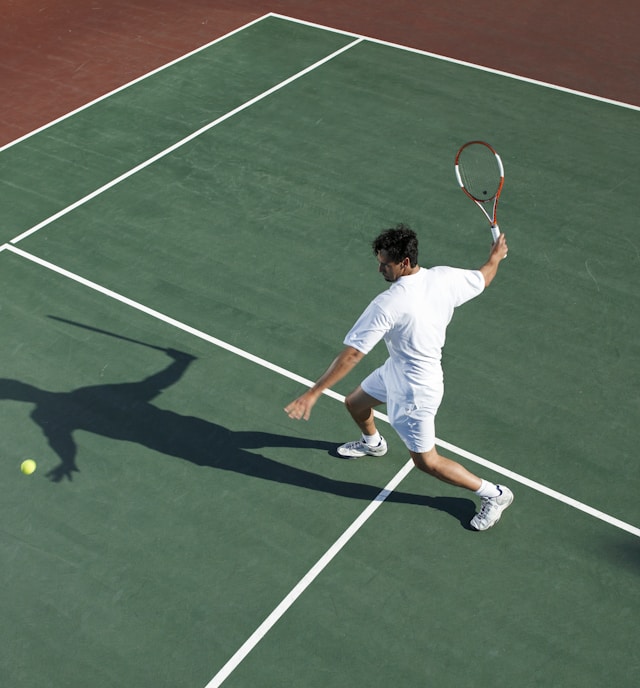Sports are more than just games—they’re a pathway to personal transformation, community connection, and overall well-being. Whether it’s the physical exertion, mental discipline, or social engagement, sports have a unique ability to influence multiple aspects of life. For centuries, they’ve been a vital part of cultures worldwide, bringing people together and fostering growth in ways that go far beyond the playing field.
Physical Fitness and Health Advantages
At the core of any sport lies the undeniable benefit of improved physical fitness. Engaging in sports helps maintain a healthy body by boosting cardiovascular health, increasing muscle strength, and enhancing flexibility. Activities such as basketball, swimming, running, and tennis are excellent cardiovascular exercises that strengthen the heart, improve blood circulation, and boost lung capacity.
According to Atlas98 or those aiming to build strength, sports like weightlifting, football, or martial arts promote muscle development and improve endurance. The regular practice of such sports leads to increased stamina and stronger bones, which are crucial for maintaining mobility and preventing conditions like osteoporosis. Moreover, sports encourage weight management, as they burn calories and speed up metabolism, contributing to overall physical well-being.
The long-term health benefits of sports extend to preventing chronic illnesses. Regular physical activity has been shown to reduce the risk of conditions like type 2 diabetes, heart disease, and obesity. Additionally, sports promote better sleep and help regulate blood pressure, creating a balanced and healthy lifestyle.
Mental Health and Psychological Growth
While the physical rewards of sports are evident, the mental health benefits are just as significant. Participating in sports provides a natural boost in mood by triggering the release of endorphins, often referred to as the body’s “feel-good” chemicals. These hormones help reduce feelings of stress, anxiety, and depression, offering a sense of relaxation and mental clarity.
Beyond immediate stress relief, sports also foster mental resilience. Athletes face challenges, whether it’s the pressure of competition, overcoming a tough loss, or pushing through fatigue. These situations teach them how to cope with adversity, manage emotions, and develop a growth mindset. This resilience translates into everyday life, helping individuals handle stress more effectively and approach challenges with a solution-oriented mindset.
In addition to emotional regulation, sports sharpen cognitive skills. Many sports, like soccer, tennis, and basketball, require quick decision-making, strategic thinking, and focus. These mental exercises improve concentration, memory, and problem-solving abilities, making sports a valuable tool for brain health.
Building Social Bonds and Community Engagement
Sports are one of the most effective ways to build social bonds and create lasting relationships. Whether participating in team sports like soccer or joining a local running club, sports bring people together in a shared experience. These interactions foster camaraderie, trust, and mutual respect, helping individuals connect with others in a meaningful way.
Team sports, in particular, require collaboration, communication, and cooperation to succeed. Players learn how to work with others, share responsibilities, and support each other to achieve a common goal. These skills extend beyond the playing field, contributing to better teamwork and communication in both professional and personal settings.
For those who prefer individual sports, the social aspect still plays a key role. Solo activities like running, cycling, or yoga often involve group settings, races, or classes, where individuals can bond over their shared interest. The social connections formed through sports enhance a sense of belonging and provide emotional support, contributing to an individual’s overall well-being.
Sports also play a significant role in fostering community spirit. Local leagues, charity events, and recreational sports programs bring communities together, creating opportunities for people of all ages and backgrounds to interact and engage. This sense of unity strengthens the social fabric of the community, promoting inclusivity and shared identity.
Developing Key Life Skills
Sports teach invaluable life skills that go far beyond the field or court. One of the most important is discipline. To succeed in sports, individuals must commit to regular training, set goals, and maintain focus. This sense of discipline is transferable to other aspects of life, helping individuals stay motivated and dedicated in their academic, professional, or personal pursuits.
Time management is another critical skill developed through sports. Balancing training sessions, competitions, and personal responsibilities requires planning and prioritization. Learning how to manage time efficiently helps athletes, particularly young ones, build the foundation for handling multiple commitments later in life.
Additionally, sports teach resilience and how to handle both success and failure. Winning a game brings feelings of accomplishment, but learning to cope with losing is just as important. Sports provide a safe environment for individuals to experience setbacks, learn from mistakes, and grow stronger. This ability to persevere through challenges builds confidence and encourages a growth mindset, which is beneficial in all areas of life.
Encouraging Lifelong Healthy Habits
Engaging in sports from an early age often instills lifelong healthy habits. People who grow up playing sports tend to carry their love of physical activity into adulthood, making exercise a regular part of their routine. This commitment to fitness not only ensures long-term physical health but also promotes mental well-being and a balanced lifestyle.
Furthermore, sports promote a holistic approach to health, encouraging participants to pay attention to their diet, sleep patterns, and recovery practices. By adopting these habits, individuals are more likely to maintain a healthy and active lifestyle well into their later years.
Conclusion
Sports provide a powerful foundation for personal growth, physical health, and community connection. From improving fitness levels to fostering mental resilience and social engagement, sports play a critical role in shaping a balanced and fulfilling life. Whether played competitively or recreationally, the impact of sports reaches far beyond the field, creating positive changes that last a lifetime. So, whether it’s lacing up your sneakers or joining a local team, the transformative power of sports is waiting to be embraced.
